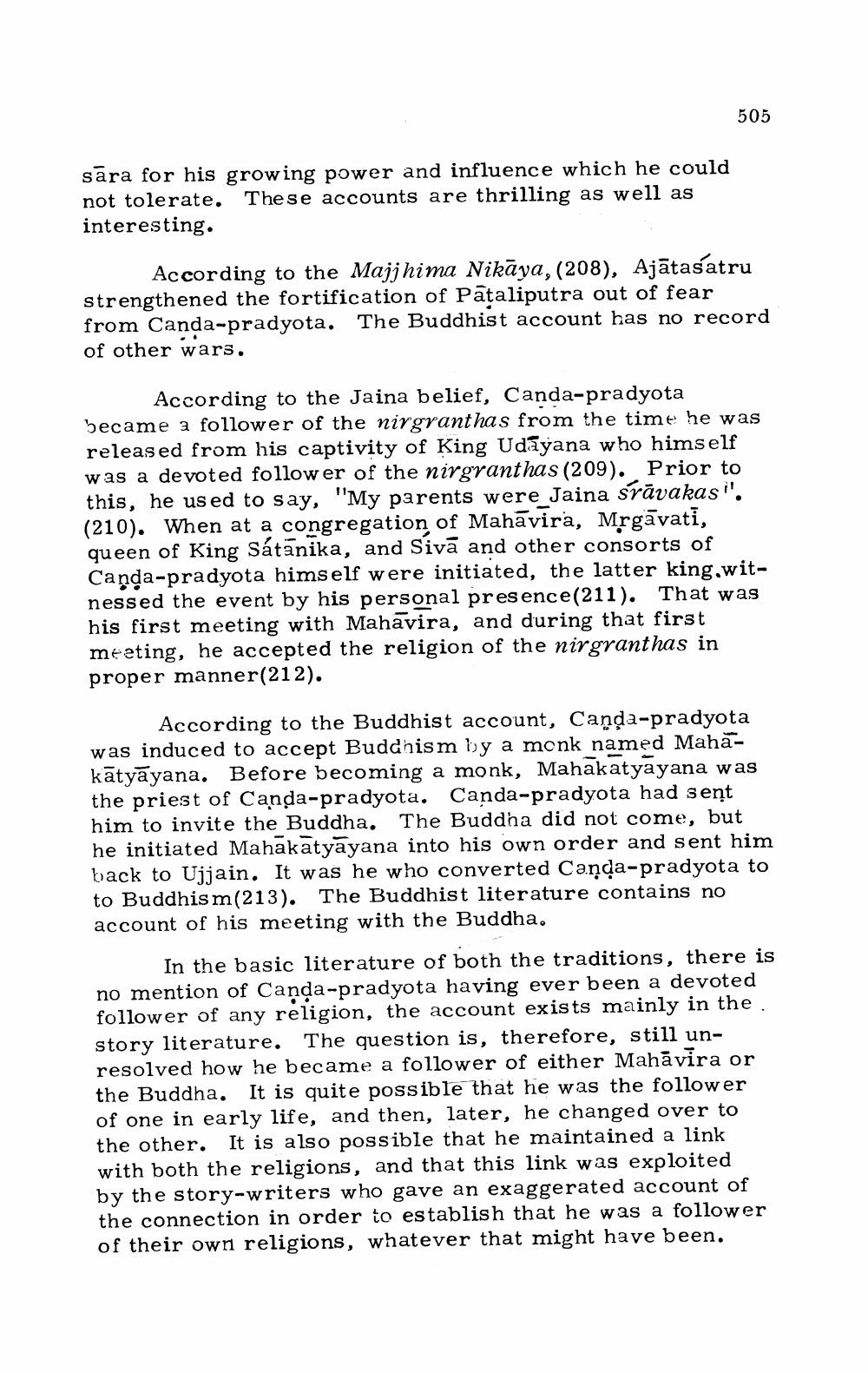________________
505
sāra for his growing power and influence which he could not tolerate. These accounts are thrilling as well as interesting.
According to the Majjhima Nikaya, (208), Ajātasatru strengthened the fortification of Pātaliputra out of fear from Canda-pradyota. The Buddhist account has no record of other wars.
According to the Jaina belief, Canda-pradyota became a follower of the nir grant has from the time he was released from his captivity of King Udayana who himself was a devoted follower of the nirgranthas (209). Prior to this, he used to say, "My parents were Jaina srāvakasi. (210). When at a congregation of Mahavira, Mrgāvati, queen of King Satanika, and Siva and other consorts of Canda-pradyota himself were initiated, the latter king.witnessed the event by his personal presence(211). That was his first meeting with Mahavira, and during that first meeting, he accepted the religion of the nir grant has in proper manner(212).
According to the Buddhist account, Canda-pradyota was induced to accept Buddhism by a monk named Mahakātyāyana. Before becoming a monk, Mahakatyayana was the priest of Canda-pradyota. Canda-pradyota had sent him to invite the Buddha. The Buddha did not come, but he initiated Mahakatyayana into his own order and sent him back to Ujjain. It was he who converted Canda-pradyota to to Buddhism(213). The Buddhist literature contains no account of his meeting with the Buddha.
In the basic literature of both the traditions, there is no mention of Canda-pradyota having ever been a devoted follower of any religion, the account exists mainly in the story literature. The question is, therefore, still unresolved how he became a follower of either Mahā vira or the Buddha. It is quite possible that he was the follower of one in early life, and then, later, he changed over to the other. It is also possible that he maintained a link with both the religions, and that this link was exploited by the story-writers who gave an exaggerated account of the connection in order to establish that he was a follower of their own religions, whatever that might have been.




